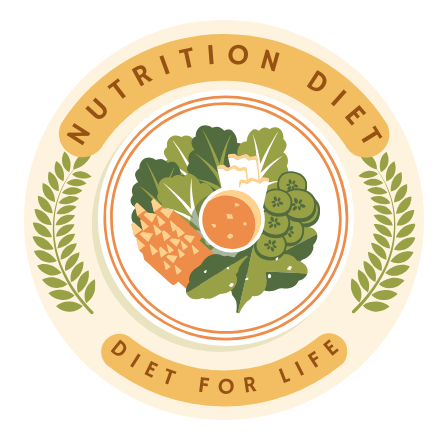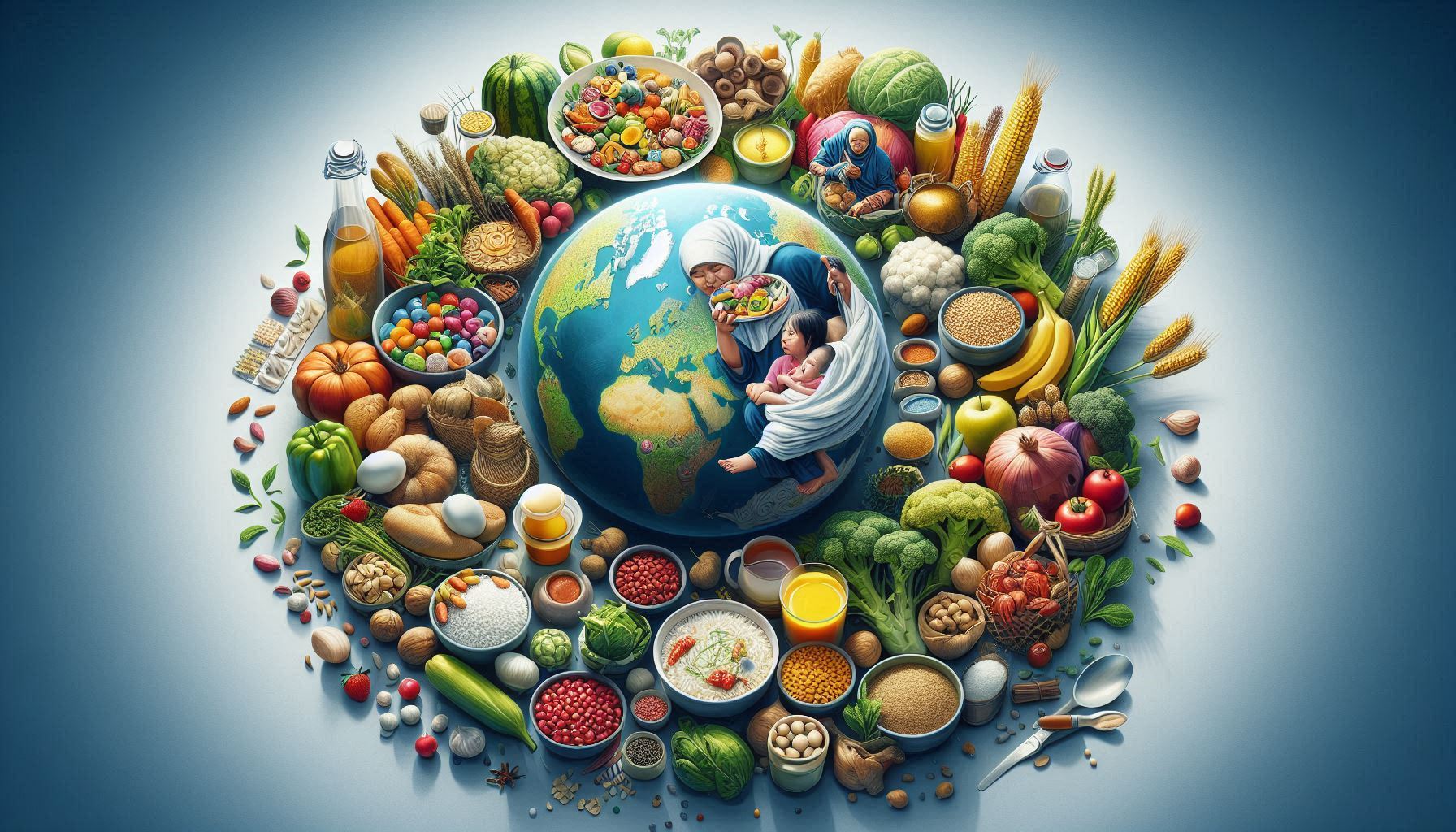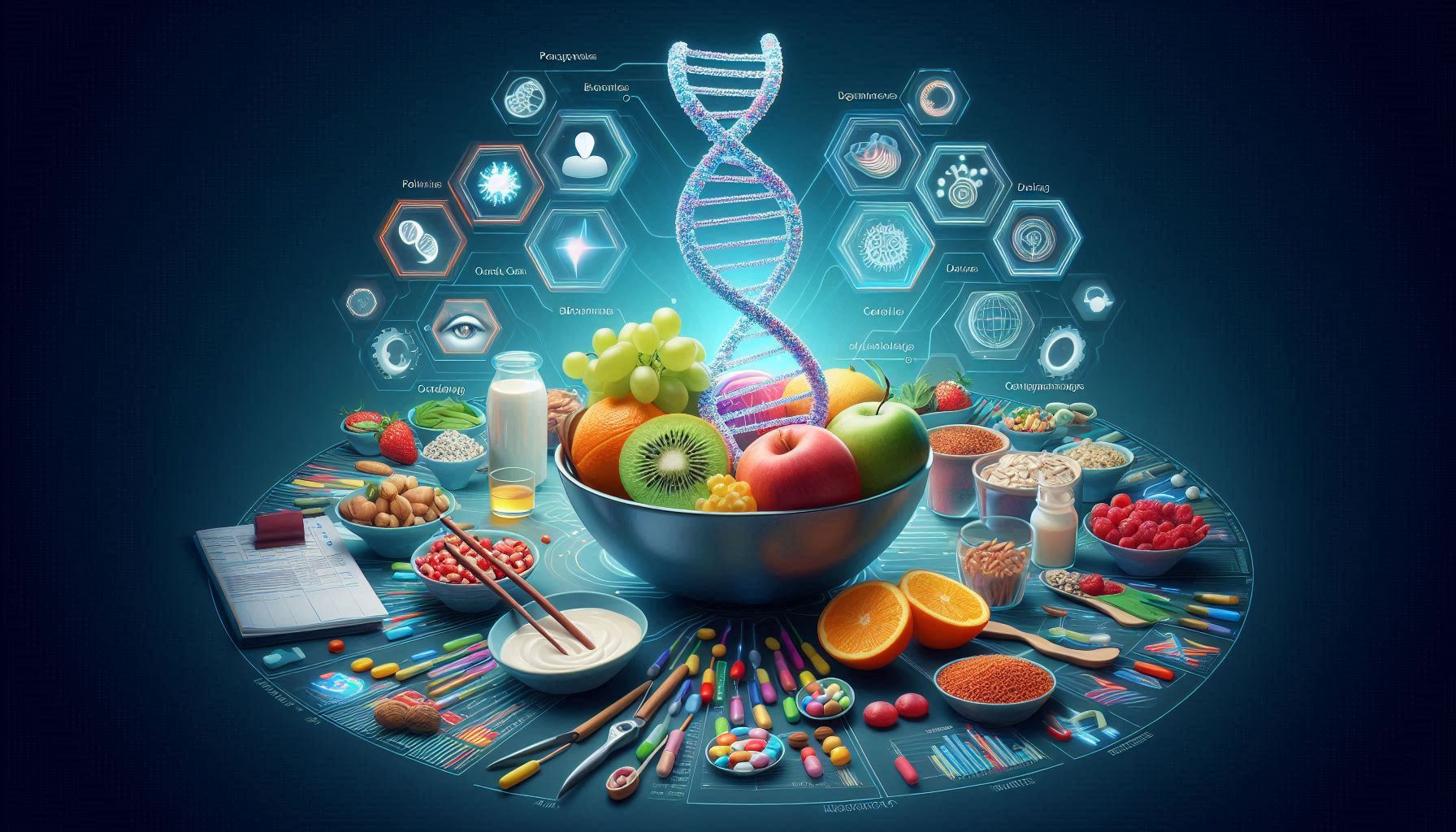In recent years, plant-based diets have transitioned from a niche lifestyle choice to a mainstream movement. Fueled by growing awareness of the environmental and health consequences of modern food systems, as well as ethical concerns surrounding animal agriculture, more people are making the shift toward plant-based eating. Whether adopting a fully vegan or vegetarian lifestyle, or simply reducing the consumption of animal products, plant-based diets offer a range of benefits. However, these diets also come with nutritional challenges that need careful attention and planning.
This guide explores the various facets of a plant-based diet in-depth, including its potential health benefits, the environmental impact, ethical motivations, challenges individuals may face, and key nutritional considerations. The aim is to provide readers with the tools and knowledge they need to thrive on a plant-based diet, along with insights into overcoming common barriers.
What is a Plant-Based Diet?
A plant-based diet focuses primarily on foods that come from plants. While there are different ways individuals may adopt this lifestyle, the core of the diet consists of whole, nutrient-dense plant foods. It emphasizes the following food groups:
- Fruits and Vegetables: Fresh fruits and vegetables are central to a plant-based diet, providing an array of essential nutrients, including vitamins, minerals, antioxidants, and fiber. They help support the immune system, improve digestion, and offer a variety of health benefits, such as reducing inflammation and lowering the risk of chronic diseases.
- Whole Grains: Whole grains like oats, quinoa, brown rice, barley, and whole wheat serve as staple sources of carbohydrates, providing long-lasting energy, fiber, and important nutrients such as B vitamins, iron, and magnesium. They are crucial for maintaining blood sugar levels and supporting digestive health.
- Legumes: Legumes, including beans, lentils, peas, and soy products like tofu and tempeh, are excellent sources of plant-based protein. These foods are also rich in fiber, folate, iron, and other important micronutrients. Legumes help build muscle, support heart health, and stabilize blood sugar levels.
- Nuts and Seeds: Nuts and seeds, such as almonds, walnuts, chia seeds, and flaxseeds, provide healthy fats, protein, and essential minerals like magnesium, zinc, and calcium. They are also a great source of omega-3 fatty acids, which are beneficial for heart health and brain function.
- Plant-Based Oils: Oils derived from plants, such as olive oil, avocado oil, and coconut oil, are commonly used for cooking and as dressings. These oils are rich in healthy fats, such as monounsaturated fats and medium-chain triglycerides, which can support heart health, boost metabolism, and provide energy.
Some individuals who adopt plant-based eating may still consume small amounts of animal-derived products like eggs, dairy, or honey. However, the core of a plant-based diet is focused on minimizing or eliminating animal-based foods entirely.
Health Benefits of a Plant-Based Diet
1.Reduced Risk of Chronic Diseases
A plant-based diet is associated with a reduced risk of several chronic health conditions, including cardiovascular disease, type 2 diabetes, certain types of cancer, and obesity. This is primarily due to the high intake of fiber, antioxidants, and healthy fats, combined with a low intake of saturated fats and processed foods.
- Cardiovascular Health: Plant-based diets have been shown to reduce the risk of heart disease by lowering levels of LDL cholesterol (the “bad” cholesterol), reducing blood pressure, and improving overall heart health. High-fiber foods like fruits, vegetables, whole grains, and legumes help lower cholesterol and reduce inflammation, which are major contributors to cardiovascular disease.
- Diabetes Management and Prevention: A plant-based diet can help regulate blood sugar levels and improve insulin sensitivity, which can prevent or help manage type 2 diabetes. Many plant-based foods, such as beans, sweet potatoes, and whole grains, have a low glycemic index and are absorbed slowly by the body, preventing blood sugar spikes.
- Cancer Prevention: Plant-based foods, particularly those rich in antioxidants and phytochemicals, have been shown to lower the risk of certain cancers. Fruits, vegetables, and legumes are rich in compounds that have anti-inflammatory and anti-cancer properties. For example, cruciferous vegetables like broccoli and kale contain sulforaphane, a compound that has been linked to reduced cancer risk.
- Weight Management: Plant-based diets are naturally lower in calories and higher in fiber, which can help with weight loss and maintaining a healthy weight. The high fiber content also promotes satiety, reducing the likelihood of overeating and contributing to better long-term weight management.
2. Improved Gut Health
Gut health is increasingly recognized as a cornerstone of overall well-being. A plant-based diet, particularly one rich in fiber, is beneficial for maintaining a healthy gut microbiome, which is critical for digestion, immune function, and mental health.
- Fiber and Digestive Health: The high fiber content of a plant-based diet promotes healthy digestion by supporting regular bowel movements and preventing constipation. Additionally, fiber acts as food for beneficial gut bacteria, encouraging their growth and maintaining a balanced microbiome.
- Diverse Microbiome: A diverse plant-based diet with a variety of fruits, vegetables, legumes, and whole grains supports a more diverse gut microbiome, which is associated with better overall health. Research has shown that individuals with a diverse microbiome are at lower risk for conditions like obesity, heart disease, and diabetes.
3. Better Skin Health
Many people report improvements in skin health after adopting a plant-based diet. The combination of antioxidants, vitamins, and healthy fats found in plant foods can help reduce inflammation and promote skin healing.
- Anti-Inflammatory Effects: Plant-based foods rich in vitamins A, C, and E, as well as polyphenols and flavonoids, help reduce skin inflammation, a key contributor to conditions like acne, eczema, and psoriasis.
- Hydration and Skin Health: Many fruits and vegetables, such as cucumbers, watermelon, and leafy greens, have high water content, which helps keep the skin hydrated from the inside out.
4. Mental Health and Cognitive Function
Emerging research suggests that plant-based diets may play a role in improving mental health outcomes. Nutrient-dense plant foods can have a positive impact on mood, cognitive function, and mental clarity.
- Reducing Inflammation and Depression: Chronic inflammation is believed to play a role in the development of mood disorders like depression. The anti-inflammatory properties of a plant-based diet may help alleviate symptoms of depression and anxiety by reducing systemic inflammation.
- Brain-Boosting Nutrients: Plant-based diets rich in omega-3 fatty acids (found in flaxseeds, walnuts, and chia seeds), B vitamins (found in leafy greens, legumes, and whole grains), and antioxidants can support brain health, enhance memory, and reduce the risk of cognitive decline.
Environmental Benefits of a Plant-Based Diet
Adopting a plant-based diet is one of the most effective ways to minimize an individual’s environmental impact. Animal agriculture, particularly the production of meat and dairy, is responsible for significant environmental harm, contributing to issues such as deforestation, water pollution, and greenhouse gas emissions. By shifting toward plant-based eating, individuals can significantly reduce their carbon footprint and support a more sustainable food system.
- Reduced Greenhouse Gas Emissions: Animal agriculture is a leading cause of greenhouse gas emissions, especially methane and nitrous oxide. These gases are far more potent than carbon dioxide in terms of their global warming potential. Livestock farming, particularly cattle, generates large amounts of methane through digestion, and the use of fertilizers for animal feed contributes to nitrous oxide emissions. By decreasing the demand for animal products, individuals can help reduce the production of these harmful gases. A plant-based diet contributes to lower emissions by reducing the need for meat and dairy production, both of which are energy-intensive and require significant resources.
- Conservation of Water Resources: Animal farming is extremely water-intensive. Not only do animals require water for drinking, but large amounts of water are also needed to grow the crops that feed them. For example, producing a pound of beef requires around 1,800 gallons of water, whereas plant-based foods like grains, vegetables, and legumes generally require much less water to produce. By reducing the consumption of animal-based products, individuals can significantly conserve water resources, helping to protect vital freshwater supplies that are becoming increasingly scarce in many regions of the world.
- Reduction in Land Use and Deforestation: Livestock farming requires vast amounts of land, both for grazing and for growing animal feed. This often leads to deforestation and the destruction of ecosystems. In contrast, plant-based agriculture requires less land, as crops are grown directly for human consumption. Shifting toward a plant-based diet helps reduce the pressure on forests and natural habitats, allowing them to remain intact and preserve biodiversity. By reducing the need for land to raise livestock, plant-based diets contribute to more sustainable and efficient land use.
- Sustainability of Food Systems: Plant-based diets support more sustainable food systems by lessening the environmental pressures associated with animal agriculture. Conventional livestock farming contributes to soil degradation, loss of biodiversity, and the extensive use of pesticides and fertilizers. By shifting to plant-based foods, individuals help reduce the need for these chemicals and promote healthier soil and ecosystems. Plant-based agriculture tends to have a lower environmental impact, helping to build a more resilient and sustainable food system for the future.
Ethical Considerations and Animal Welfare
Many individuals are motivated to adopt a plant-based diet out of concern for animal welfare. Factory farming practices, which are common in modern agriculture, often involve the confinement and inhumane treatment of animals.
- Animal Rights and Welfare: A key ethical argument for plant-based diets is the desire to avoid contributing to the suffering of animals in factory farms. By choosing plant-based foods, individuals can take a stand against animal cruelty and exploitation in the food industry.
- Reduction in Factory Farming: The global demand for meat and dairy products drives the expansion of factory farms, where animals are often subjected to overcrowded conditions, lack of natural light, and inhumane practices. A widespread shift to plant-based diets could reduce the demand for such facilities, leading to improvements in animal welfare.
Challenges of a Plant-Based Diet
While the benefits of a plant-based diet are substantial, there are several challenges that individuals may face when adopting this way of eating.
1. Nutritional Deficiencies
Without careful planning, a plant-based diet can lead to deficiencies in certain nutrients, particularly vitamin B12, iron, calcium, vitamin D, omega-3 fatty acids, and protein. It’s important to understand how to source these nutrients from plant-based foods or supplements.
- Vitamin B12: Since B12 is only found naturally in animal products, plant-based eaters must rely on fortified foods or supplements to meet their needs.
- Iron: While plant foods like spinach, lentils, and tofu contain iron, it is non-heme iron, which is less easily absorbed by the body. Pairing iron-rich foods with vitamin C can enhance absorption.
- Protein: Although plant-based protein sources like beans, lentils, and tofu are abundant, they may not provide all essential amino acids in one meal. Combining different protein sources, such as beans and rice, ensures a complete profile of amino acids.
- Omega-3 Fatty Acids: Plant-based sources of omega-3s, such as flaxseeds and walnuts, are essential for brain health and reducing inflammation.
2. Social and Cultural Barriers
One of the main challenges for people adopting a plant-based diet is the social aspect. Many cultures place a high value on meat-based meals, and individuals may face resistance from family, friends, and colleagues when choosing plant-based alternatives. Social events, dining out, and family gatherings may lack plant-based options, making it difficult to maintain the diet in these settings.
3. Practicality and Accessibility
Depending on where one lives, plant-based foods may be less accessible or more expensive than their animal-based counterparts. Urban areas often have a wider variety of plant-based options, but in rural or less developed regions, availability may be limited.
4. Culinary Skills and Meal Planning
Successfully transitioning to a plant-based diet requires knowledge of how to prepare balanced and nutritious meals. Individuals who are used to cooking with meat may need to invest time in learning new recipes, experimenting with plant-based proteins, and planning meals to ensure they get all necessary nutrients.
Conclusion
A plant-based diet provides a range of benefits for health, the environment, and animal welfare. By focusing on whole plant foods, individuals can enhance heart health, manage weight, improve digestion, and lower the risk of chronic diseases such as diabetes and cancer. Plant-based eating is also linked to a reduction in the consumption of saturated fats, which further supports overall health. Additionally, choosing plant-based foods helps reduce greenhouse gas emissions, minimize water usage, and promote sustainability, making it an eco-friendly option. From an ethical standpoint, plant-based diets align with animal welfare values by reducing reliance on animal agriculture, which often involves harmful practices.
While the benefits of a plant-based diet are clear, transitioning to this way of eating requires thoughtful planning to ensure nutritional adequacy. Key nutrients such as vitamin B12, iron, calcium, omega-3 fatty acids, and protein may be more challenging to obtain from plant foods alone. Therefore, individuals need to be mindful of food choices and consider supplements or fortified foods where necessary. This transition can also involve learning new cooking techniques, finding suitable alternatives, and adjusting social habits. With the right knowledge and preparation, individuals can successfully adopt a plant-based diet that supports both their health and the planet. By focusing on nutrient-dense, whole plant foods and addressing nutritional needs, individuals can enjoy a sustainable, compassionate, and health-promoting lifestyle.
SOURCES
Bielenberg, K., 2021. The environmental benefits of plant-based eating. Environmental Health Perspectives, 129(4), 27-34.
Brouwer, I. A., 2017. The impact of plant-based diets on heart health. American Journal of Clinical Nutrition, 106(3), 513-518.
Chiuve, S. E., 2017. Plant-based diets and chronic disease prevention. Journal of the American College of Cardiology, 70(3), 425-438.
Craig, W. J., 2019. Health effects of vegan diets. The American Journal of Clinical Nutrition, 105(5), 1131-1138.
Dai, Z., & Zheng, Y., 2020. The role of fiber in the prevention of chronic diseases. Frontiers in Nutrition, 7, 35-48.
Dominick, C., & Bailey, R. E., 2021. Ethical implications of plant-based eating: Animal welfare and the food industry. Ethics and Food Policy, 13(1), 45-60.
Dunn, R. S., 2018. Plant-based diets: Environmental and sustainability considerations. Global Environmental Change, 21(1), 234-241.
Haddad, E., 2022. The nutritional challenges of plant-based diets. Nutrition Reviews, 80(8), 780-792.
Lynch, S. G., & Friedman, J. H., 2016. Plant-based nutrition and its effects on cognitive health. Journal of Alzheimer’s Disease, 47(4), 907-918.
Micha, R., 2017. Global dietary habits and the impact on health and the environment. The Lancet, 390(10110), 2179-2189.
Micha, R., Peñalvo, J. L., Cudhea, F., & Rehm, C. D., 2017. Association between dietary factors and mortality from heart disease, stroke, and type 2 diabetes. New England Journal of Medicine, 377(15), 1417-1427.
Orlich, M. J., & Singh, P. N., 2017. Vegetarian diets and the risk of type 2 diabetes. JAMA Internal Medicine, 177(4), 580-588.
Pereira, M. A., 2018. The role of plant-based diets in managing chronic diseases. Nutritional Reviews, 76(9), 737-746.
Pimentel, D., 2019. The environmental costs of animal agriculture: Implications for policy. Journal of Sustainable Agriculture, 41(3), 320-332.
Turner-McGrievy, G. M., 2018. A comparison of plant-based and omnivorous diets for cardiovascular disease risk. Nutrients, 10(12), 1891-1902.
Willett, W. C., Rockström, J., & Loken, B. (Eds.), 2019. Food in the Anthropocene: The EAT-Lancet Commission on healthy diets from sustainable food systems. Lancet.
Zhao, S., & Zhang, J., 2020. Nutritional adequacy of plant-based diets: An analysis of risks and benefits. Journal of Nutrition, 150(7), 1801-1808.
HISTORY
Current Version
November 15, 2024
Written By:
SUMMIYAH MAHMOOD




